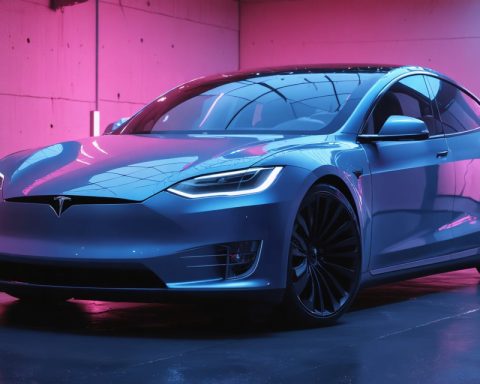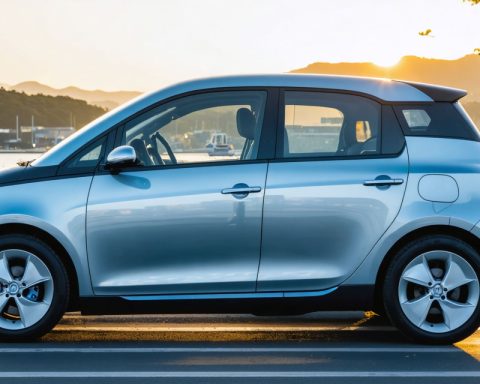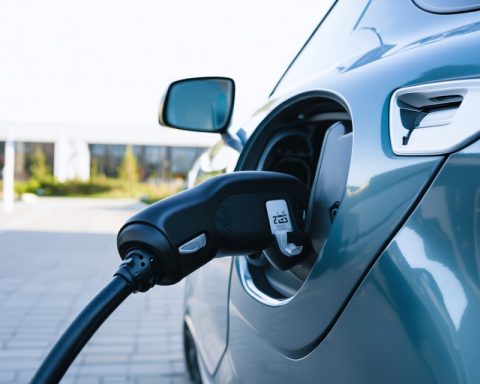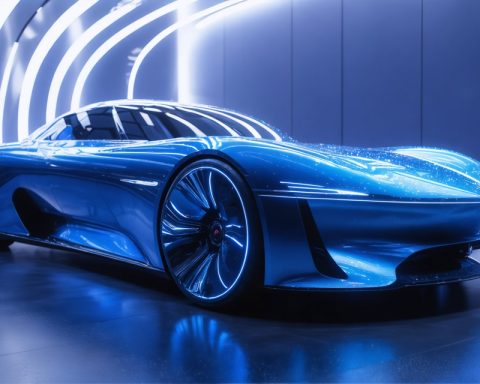- Modern EVs travel over 400 miles on a single charge, alleviating “range anxiety” and supporting long-distance travel.
- The UK adds a new public EV charger every 25 minutes, with availability even in unexpected places like lampposts.
- Home charging is simple, economical, and reduces the need for public chargers, offering significant cost savings over traditional fuel.
- EVs have fewer mechanical parts, enhancing reliability over conventional cars, with long warranties and over-the-air updates further boosting confidence.
- Prices for EVs are decreasing, with affordable models like the Dacia Spring available for under £15,000, complemented by lower running costs and financing options.
- EVs produce significantly less pollution over their lifespan, contributing to better urban air quality and benefiting environmental goals.
- EVs offer exhilarating driving experiences, lower costs, and greener credentials, marking them as a practical investment for the future.
When you press the pedal of an electric vehicle (EV), something magical happens. A whisper-quiet surge of power propels you forward, defying assumptions about the staid electric car. For those still haunted by myths of limited range and nightmarish charging stations, it’s time to reconsider the facts in an electrified world.
Distant are the days when “range anxiety” dominated conversations about EVs. Today, modern electric vehicles can travel upwards of 400 miles on a single charge, effortlessly accommodating the average daily journey of around 25 miles. Long-distance travel, once an insurmountable hurdle, is now a valuable litmus test for the versatile EV. Imagine setting out on a road trip to England’s east coast: a 150-mile jaunt that left one vehicle, a Genesis GV70, with an impressive 110 miles of range to spare. No longer does the prospect of a longer trip require meticulous plotting of charging stations.
Charging infrastructure, a decade ago seen as sparse and unreliable, has experienced remarkable growth. The UK now witnesses the installation of a new public charger every 25 minutes. With accessibility now even extending to locations as unexpected as lampposts, the anxieties of yesteryear fade. The array of chargers is diverse, ranging from leisurely supermarket wait stations to rapid chargers capable of rejuvenating a battery from 10% to 80% in a mere 18 minutes.
Home charging lures with its simplicity and cost-effectiveness. Like the comfort of plugging in your phone overnight, EVs can be charged at home, proving far more economical than filling a traditional gas tank. Not only does this convenience lessen the reliance on public chargers, but it also promises savings that make an EV a savvy long-term investment.
Critics who doubt the reliability of electric cars often overlook their elegant simplicity. The absence of countless moving parts reduces mechanical failures, making EVs inherently more reliable than their petrol-guzzling counterparts. Long warranties further bolster consumer confidence in battery longevity. Additionally, over-the-air updates keep these vehicles up-to-date, often enhancing performance and efficiency remotely.
Price, though once prohibitive, continues its downward trend. Affordable options, such as the Dacia Spring, have emerged, offering approachable electric alternatives for under £15,000. Combined with lower running costs and attractive finance options, there’s an EV for nearly every budget.
The environmental promise of EVs fuels their appeal further. Over their lifespan, these vehicles generate significantly less pollution than traditional cars. Their zero local emissions improve urban air quality, marking a significant victory for environmental conciousness.
So, is an electric car worth embracing? Beyond the initial shift in mindset—viewing a car not as a gas-burning contraption but as a sleek, futuristic machine—the benefits become undeniable. From their exhilarating drive to their lower running costs and greener credentials, EVs transcend traditional automotive paradigms. The electric future is not just coming; it’s ready for you to drive.
The Electrified Revolution: Unveiling Myths and Relishing Real Benefits of Electric Vehicles
Exploring the Advantages of Electric Vehicles
Modern electric vehicles (EVs) have evolved to defy outdated myths and present a promising alternative to traditional cars. As technology advances, EVs are becoming more reliable, affordable, and widely accepted. Here’s an in-depth look into the latest facts, trends, and answers to common concerns about EVs.
Range and Charging Infrastructure
Range Anxiety No More:
EVs are now achieving ranges well beyond the daily average commute, with many models offering over 400 miles on a single charge. As reported by reputable sources like Tesla and Hyundai, this alleviates the need for constant recharging during long trips, reducing “range anxiety” significantly.
Rapid Growth in Charging Stations:
According to the International Energy Agency, the installation of public charging stations is accelerating, with one new unit being installed roughly every 25 minutes in the UK. Moreover, the diversity of charging options, including fast chargers that power up an EV to 80% in just 18 minutes, is readily expanding.
Cost Efficiency and Incentives
Economic Benefits:
Home charging stations offer a cost-saving advantage similar to charging smartphones overnight. Moreover, governmental incentives and rebates make EV ownership more affordable. The initial cost of EVs is steadily decreasing, and many models, such as the Dacia Spring, are now priced under £15,000.
Lower Maintenance Costs:
EVs have fewer mechanical components, leading to reduced maintenance issues compared to traditional vehicles. They require less frequent servicing and no oil changes, which significantly lowers overall maintenance costs.
Environmental Impact
Green Credentials:
EVs produce zero tailpipe emissions, contributing to improved urban air quality and a lower overall carbon footprint. According to IEA, transitioning to EVs is a crucial step in combating climate change and reducing pollution.
Technological Advancements and Future Prospects
Continuous Innovation:
Many electric cars receive performance and efficiency enhancements via over-the-air software updates. This aligns EVs more closely with the latest automotive technologies without the need for new physical components. Additionally, advances in battery technology promise even longer ranges and shorter charging times in the near future.
Consumer-Friendly Features:
EVs come equipped with state-of-the-art features such as regenerative braking, advanced driver assistance systems, and high-tech infotainment options, all of which contribute to a superior driving experience.
Addressing Controversies and Concerns
Battery Longevity and Recycling:
Concerns about battery life are addressed by long warranties (often 8-10 years). Furthermore, efforts to recycle EV batteries are intensifying, reducing the potential environmental impact of spent batteries.
Wide Accessibility:
Despite criticisms regarding accessibility, the expansion of charging infrastructure and falling vehicle prices make EVs increasingly viable for a wide range of consumers.
Conclusion and Quick Tips for Prospective EV Owners
1. Research Incentives: Look into local government grants, tax credits, and other incentives for purchasing an EV.
2. Consider Home Charging Options: Installing a home charging station can save time and reduce costs.
3. Plan for Future Needs: As battery technology improves, consider models with features that can be updated remotely, ensuring your vehicle stays current with technology advances.
4. Test Drive Various Models: To find the best fit, experience the driving dynamics and features of different EVs.
Electric vehicles are swiftly becoming the mainstream choice, offering an economically and environmentally sound alternative to traditional cars. Embrace the electrified road ahead, and reap the numerous benefits they provide.












